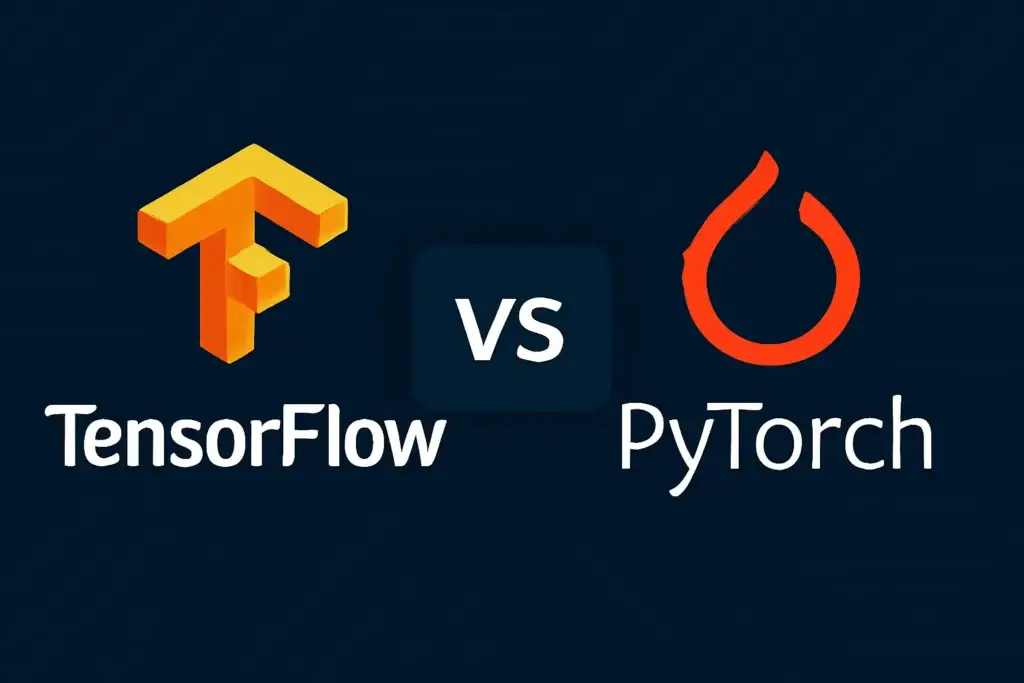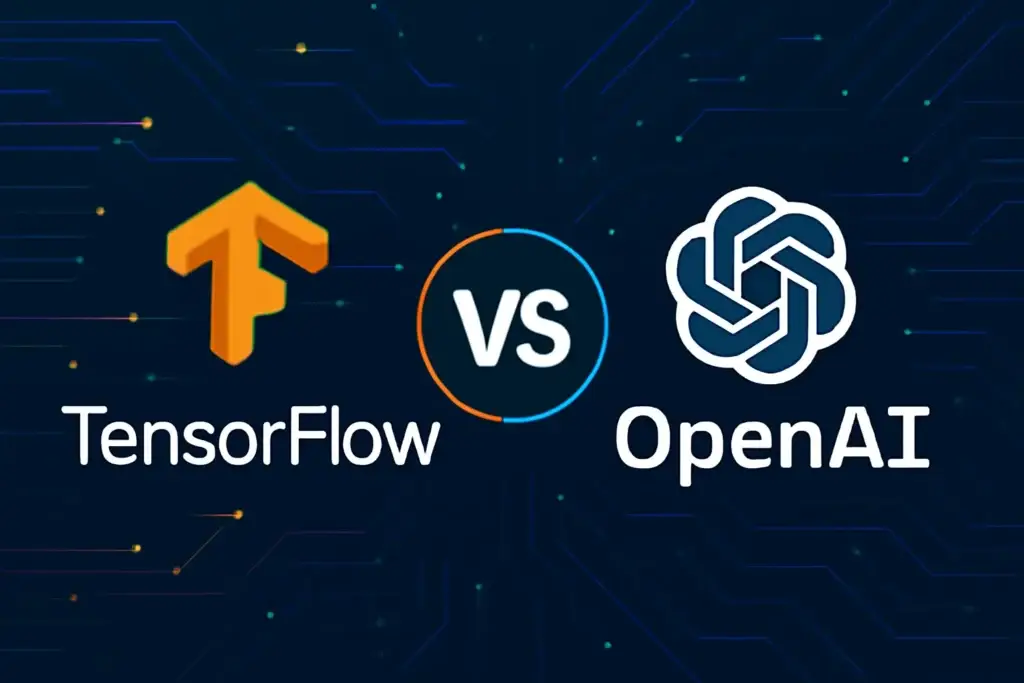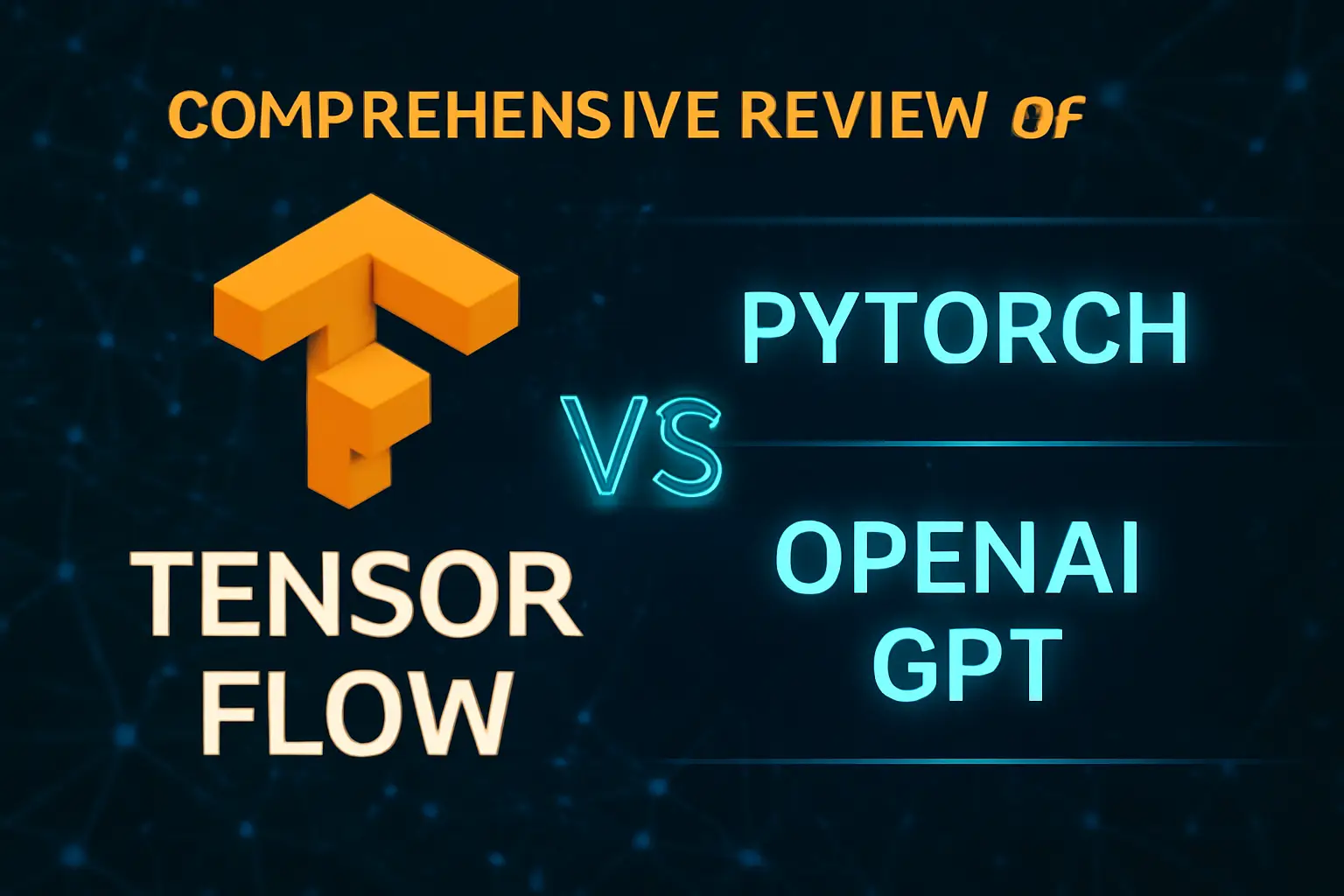TensorFlow is an open-source machine learning framework developed by Google Brain. Known for its scalability, performance, and versatility, it is considered one of the best AI tool for machine learning. In this detailed review, we’ll explore TensorFlow’s key features, its use cases, and how it compares to other top best AI tool for machine learning like PyTorch and OpenAI’s GPT.
Key Features:
TensorFlow Lite for mobile devices
TensorFlow Extended for production pipelines

Comparison to PyTorch:
• TensorFlow vs. PyTorch: TensorFlow, while being highly scalable and utilized extensively in production, stands to benefit from the popularity among researchers of PyTorch, which has a dynamic computational graph and a Pythonic interface.
• However, TensorFlow has stronger production-grade tools, and it is best suited for large-scale systems while PyTorch is better suited for research and fast prototyping.
Comparison to OpenAI’s GPT:
• TensorFlow vs. OpenAI GPT: TensorFlow is an end-to-end deep learning framework for overall machine learning applications, whereas GPT is a dedicated NLP tool. TensorFlow applies to building various types of machine learning models, but GPT targets text generation and understanding.
• When you’re developing a computer vision model, TensorFlow is what you’ll use. Notice, though, that text generation and conversational AI would better be served by GPT.

Additional Benefits of TensorFlow:
While TensorFlow is best known for its scalability and suitability for large-scale machine learning models, it also integrates seamlessly with Google Cloud, making it ideal for cloud-based applications. The flexibility it offers for deployment on various platforms sets it apart, especially in production settings.
Future of TensorFlow in AI:
The future of TensorFlow looks promising, with continuous updates to enhance model deployment and support for new hardware. Expect future versions to bring improved support for edge AI devices and easier integrations with various cloud computing platforms.
Use Cases:
• Computer Vision: TensorFlow has applications in image classification and object detection.
• NLP: TensorFlow can be utilized for NLP as well, but GPT would be a better option for intricate language creation.
Summarize TensorFlow’s advantages, its advantage over PyTorch and GPT in certain situations (such as production settings) and recommend it for large-scale machine learning.
- TensorFlow: Best AI Tool for Machine Learning & Deep Learning
- Best AI Tools for Machine Learning: A Comprehensive Review of TensorFlow, PyTorch, and OpenAI GPT
- AI SEO Tools 2025: Discover the Best AI Tools to Boost Your Search Rankings
- AI Revolution 2025: Google AI Mode, Veo 3, Grok-3 & Stargate
- Free AI Tools 2025 – Top 10 No-Signup Tools to Boost Productivity
